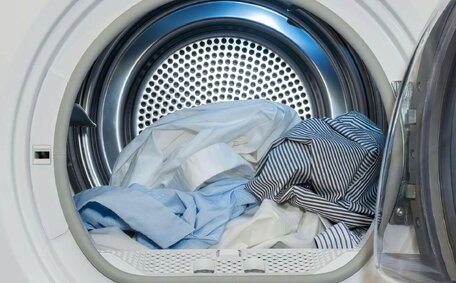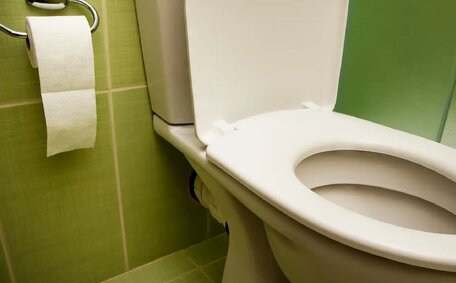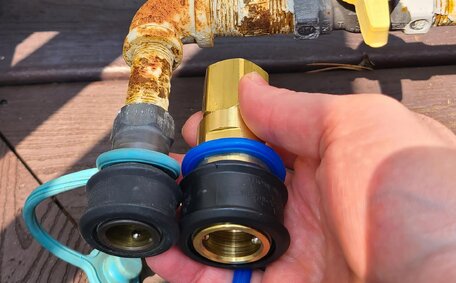Introduction to storing gas cylinders safely
Safe storage of gas bottles is essential to manage associated risks in handling and storage. At Ryde Plumbing, we are experts in gas fitting, with a focus on rigorous storage handling protocols as we adhere to regulations for ensuring gas cylinders can be stored safely in Ryde, Sydney.
In this article, This article offers best practice advice on proper gas cylinder handling, containing, and securing to mitigate risks. We cover handling precautions, transportation guidelines, appropriate signage, maintaining safe environments for cylinders storage, and more. Whether you use gas for residential, commercial or industrial purposes, this guide aims to help you store gas cylinders safely.
We will provide essential advice for creating secure, well-ventilated gas cylinder storage areas with fire-safe cabinets and cages. We outline steps for proper LP gas cylinder storage to prevent leaks, mishaps, and hazards.
Securing gas cylinders to prevent damage and leaks
A secure cylinder store is designed to prevent damage from falling or jostled gas cylinders, protecting valves and connections. According to Australian Standard AS 4332, when handling storing gas cylinders, especially fuel gas cylinders, cylinders must be strapped or chained firmly to permanent fixtures like wall brackets, benches, floor stands, or trolleys.
It is crucial for your storage protocol to keep gas cylinders upright and secured to prevent uncontrolled gas release from falls. Securing your gas cylinder ensures that it is stored firmly, preventing it from rolling freely and can cause impacts on other goods or people if it topples.
Secure storage with valve protection also safeguards the foundation, regulators, and pipework against jolts or grazes. For extensive installations, purpose-designed gas bottle cage solutions are recommendable, as are individual brackets for cylinder storage area safety, providing a well-guarded environment. Signage should displayed prominently in the gas cylinder store, warning against striking cylinders.
Store cylinders upright with valves at the top, using restraints such as chains to prevent movement. What should never be done is attempting to use gas cylinder that is damaged or improperly configured, and professionals should be contacted if in doubt about the setup safety.
Understanding regulations for household gas storage
There are important workplace health and safety regulations around storing gas cylinders in residential properties within the Ryde area. Under Australian Standard AS 4332:2004, the storage area should display hazard identification placards on the exterior.
- Be mounted at eye level on each entrance to the storage area
- Display the type gas each cylinder contains (e.g., LPG, acetylene, etc.)
- Exhibit warning icons signifying combustible or toxic gases hazards
- Include safety warnings such as “No Smoking”
Placards must also raise awareness on meticulous gas storage handling and remind householders and visitors to take safety precautions. They also alert emergency services to dangers if an incident occurs.
Other key regulations when storing gas include:
- Your LPG cylinder storage arrangement should not exceed 50kg within residential properties
- Maintaining separation distances, ensuring LPG cylinders are at least 6 meters apart for open air circulation and sufficient ventilation
- At least one regular leak detection inspection where storage should be assessed for conditions in areas where cylinders are kept by a licenced gas fitter
If your household storage flammable gases exceeds 50kg, you may require a dangerous goods storeroom with stringent health and safety controls. Check out more about tailor-fitted advice for your property and insights on managing storage of flammable gas cylinders securely by engaging with licenced gas installation experts like Ryde Plumbing.
Transporting gas cylinders safely
Safety is paramount when transporting gas in vehicle cargo areas open to the air. Cylinders containing high-pressure gases must be stored indoors, upright, to prevent dangers if mishandled during transport.
In line with Australian Standard AS 4332, where gas substances lighter than air in cylinders must be conveyed in vehicles, especially in cargo areas open to the environment, securing valves to deter atmospheric gas emissions. Vehicles ferrying gases can also be outfitted with vehicular cargo mounts, frameworks or enclosures to anchor cylinders upright in areas open air, inhibiting any displacement.
For manual handling over short distances, trolleys or carts are recommended to keep compressed gas cylinders upright. Appropriate techniques to handle gas cylinders should be employed to manage cylinders and prevent back injuries en route to storage - maintain the load near your torso, flex your knees, and lift gradually.
Seek assistance to manage large tanks, ensuring careful handling to prevent mishaps during loading or unloading.
During transport, shield oxygen cylinders from direct sunlight, rain, toxic chemicals, and other flammable hazards that could damage the tanks or connectors.
Separate full and empty cylinders, grouping similar gases by type. Securely brace cylinders to prevent contact with one another.
Before transport, inspect valves, regulators, and seals for any damage or looseness. Display signage on vehicles to alert other road users to the presence of transported gas cylinders. Prioritize public safety by considering potential risks when planning your travel route.
Contact Ryde Plumbing for comprehensive risk assessments and secure transport of multiple industrial gas cylinders. We have the expertise to safely handle, load and move compressed gases while managing risks.
Conclusion and key takeaways
Safe gas storage is key to preventing leaks, fires, and injuries. Mitigate risks by upright cylinder storage, following transport protocols, displaying clear signage, and implementing control measures like first aid.
Key takeaways for safe gas cylinder storage should include:
- Always strap cylinders to brackets or stands
- Display hazard placards visibly on cylinder stores
- Transport cylinders containing hazardous chemicals securely in vehicles
- Handle cylinders carefully when loading/unloading
- Keep all ignition sources at a safe distance from cylinder storage.
- Check cylinder valves, fittings and seals regularly
For tailored advice or to find out more about storage handling gas cylinder storage or help transporting dangerous goods, contact the team at Ryde Plumbing on 1300 349 338 or jobs@rydeplumbingservices.com.au.
Our licensed professionals ensure your gas setup meets Australian Standards and local safety regulations.






